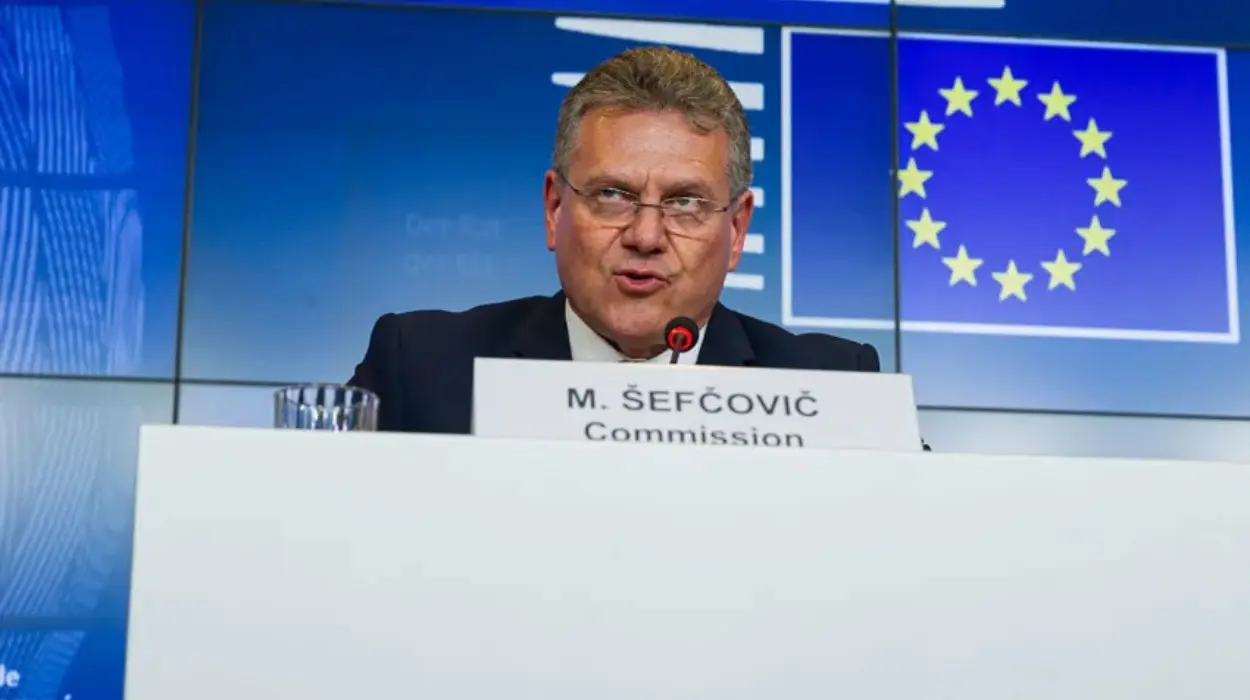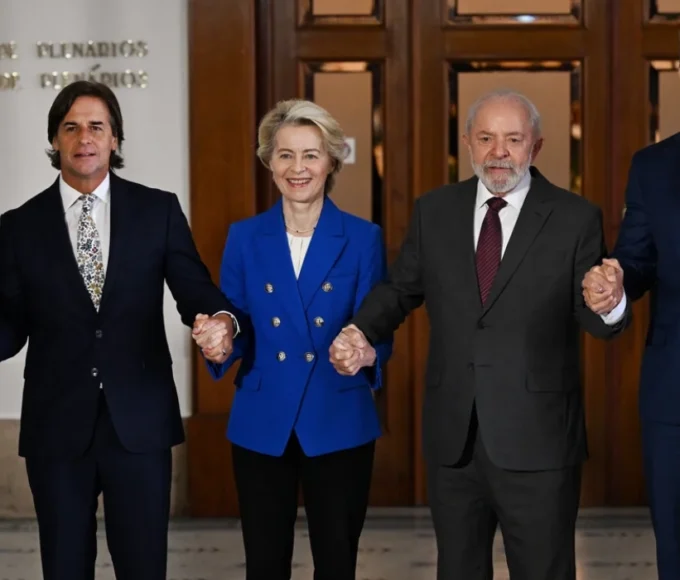The European Union has taken a decisive step in response to escalating trade tensions with the United States by initiating a formal dispute at the World Trade Organization (WTO) and preparing a massive package of retaliatory tariffs. On Thursday, the European Commission announced that it has launched a public consultation on a potential list of countermeasures targeting €95 billion (approximately $107.4 billion) worth of U.S. imports.
This move follows concerns over the U.S. government’s implementation of “reciprocal” tariff policies, including steep import duties on cars, car parts, steel, and aluminum—measures that have drawn criticism from Brussels as being in direct violation of WTO trade rules.
Read also: France’s Push for European Cloud Sovereignty
In a strongly worded statement, the European Commission asserted: “It is the unequivocal view of the EU that these [U.S.] tariffs blatantly violate fundamental WTO rules.” The EU emphasized its intention to defend the integrity of the global rules-based trading system, underlining that no country, including the United States, should be allowed to unilaterally undermine agreements made under international law.
The proposed list of goods includes a broad range of agricultural and industrial products. Notably, the list features U.S.-produced alcoholic beverages like bourbon and tequila—items that have historically been flashpoints in EU-U.S. trade relations. These spirits became a particular focus after former U.S. President Donald Trump threatened in March to impose tariffs of up to 200% on European alcohol imports.
The European Commission made clear that these countermeasures will only be implemented if ongoing negotiations fail. Currently, the EU is seeking a diplomatic resolution to avoid Trump’s proposed 20% reciprocal tariffs on all U.S. imports from the European bloc. The U.S. administration has already imposed 25% tariffs on imported vehicles and metals, significantly affecting European carmakers and the broader manufacturing sector.
EC President Ursula von der Leyen reiterated the EU’s preference for a negotiated solution, stating, “The EU remains fully committed to finding negotiated outcomes with the U.S. We believe there are good deals to be made for the benefit of consumers and businesses on both sides of the Atlantic.”
Despite preparing for possible retaliation, the EU has paused the activation of an earlier wave of counter-tariffs, which had been agreed upon by member states in April in response to metal duties. That package would have targeted about €21 billion ($24.1 billion) in U.S. goods—ranging from clothing to agricultural items—with average tariffs set at 25%.
The tension also extends to the aerospace industry. John Plueger, CEO of Air Lease Corp—a firm that buys Boeing aircraft and leases them to airlines worldwide—expressed concern over the broader implications. He warned that long-term tariffs could disrupt aircraft deliveries and even incentivize U.S. aerospace firms to establish production lines abroad to mitigate trade risks.
In a surprising turn amid the escalating transatlantic tensions, the United Kingdom is poised to become the first country to finalize a new trade agreement with the United States under the current tariff landscape. The announcement is expected to be made at 10 a.m. ET on Thursday.
This multi-faceted dispute signals a critical moment for international trade. As the EU escalates its efforts to counter U.S. tariff policies, all eyes are now on whether diplomacy or economic confrontation will prevail. The outcome could reshape trade dynamics not only between the U.S. and EU but also across global markets.
This article is originally published by: nbcphiladelphia









